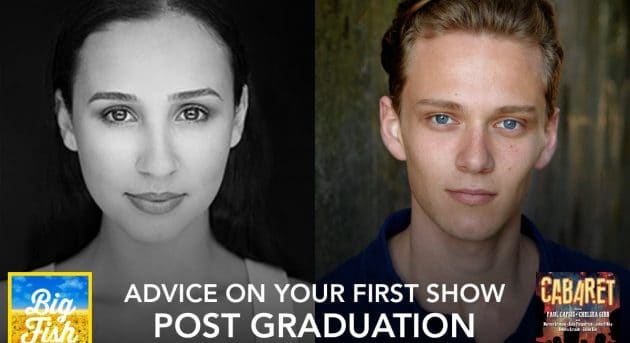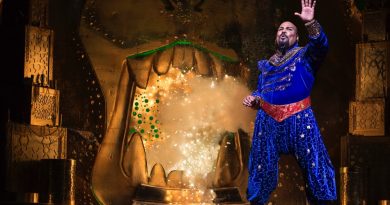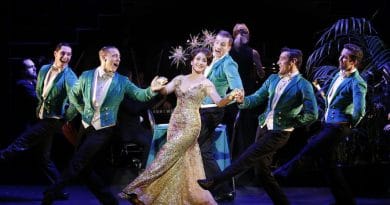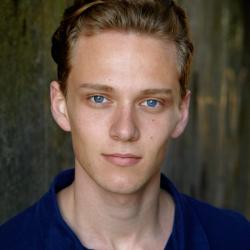We’re not in Drama School anymore, your first big show
In the final years of Drama School one does numerous full-blown shows in preparation for the professional scene. Some large scale, some small. In the case of my WAAPA class, we did about seven musicals and plays. But how much does a show at a Drama School emulate that of one in the real world? I chatted with fellow 2016 graduate, Alessandra Merlo, about our experiences in a post Drama School show. Alessandra finished her three-year Fine Arts degree at the VCA last year and has just stepped off the Hayes stage after appearing as Josephine in Big Fish presented by RPG Productions in association with Hayes Theatre Co.

After speaking with Alessandra I found many similarities in the experiences we had working with a new cast, new rehearsal space and new creative team. When studying, you’re essentially practicing the same techniques as your fellow classmates. You get taught the same physical warm-ups, focus exercises and have learned similar acting and vocal techniques. In a way, my class almost knew my process better than I did. We were aware of each others’ weaknesses and how we dealt with them. I guess that was one of the most freeing experiences of working in a show with a brand new cast. Alessandra had a similar experience in Big Fish, “No director is ever going to ask you or test you about your process. They only want to see you on the floor being free to explore the text and respond to direction and create magic. You can only do that if you come in prepared YOUR way.”
This is true for any young actor who finds themselves comparing how they work to how others work. What makes sense to one person is absolute nonsense to another. I remember connecting strongly with the animal work we did in second year. I was playing a character who was physically and emotionally far from my own being. It wasn’t until we studied the embodiment of animalistic qualities in one’s acting work that this character clicked for me. He was a bear. And I needed to be a bear. And my performance took a total shift, for the better. This wasn’t a technique that necessarily resonated with all of my classmates. And then again, it didn’t work for all of the characters I played, but it did work for me in this case.
“When you are at Drama School for three years you are taught many acting processes that you are encouraged to apply to your work”, says Alessandra “and some absolutely won’t work for you, and thats okay. Only you can know your process so use drama school (especially your third year) to work out yours, not the one that works for your classmate or your teacher.”
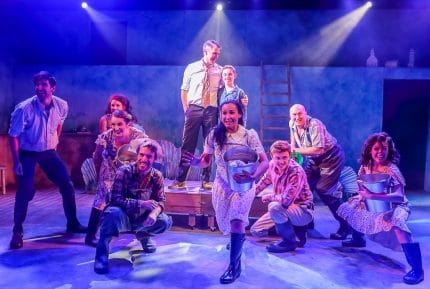
Alessandra and I also discussed our mutual appreciation for experienced actors who teach us so much about process and discipline. And how it’s an incredibly bewildering experience to play opposite an actor who is actually the same age as their character. These experienced performers have often worked in productions of varying scales with diverse budget windows. At Drama School the shows run like an extremely well-oiled machine because every cog is provided and, more often than not, functions to its absolute maximum. Whether it be the stage manager, designer, sound, lighting, mechanist – it’s all there and it’s all working. It can often be a shock to the system when you’re going from having spent 3 years in state-of-the-art facilities with a dresser who manoeuvres your quick change, to performing in a twelve seat theatre with broken footlights and a kitchenette for a dressing room.
You also have to learn how to deal with things that Drama School hasn’t necessarily taught you like covering roles, being a swing or dealing with the ranks of a production company. In my case, we didn’t get much of an opportunity to cover roles because leading characters were supposedly spread fairly throughout the shows at WAAPA. Alessandra, however, got to exercise this skill while at the VCA. “I was in the ensemble of the show and covered one of the lead roles” she says, “I was able to prepare two tracks. Working on the role I was covering while also preparing the role I was cast to perform.”
Many of my graduate friends have covered roles in professional productions and have learned on the job. They say it’s something that can’t really be taught at Drama School, and Alessandra agrees. “I think that covering roles isn’t really something that can be taught. There is no right or wrong way, the only right way is that which works for you.”
Basically, if there’s one thing we concluded from our discussion it’s that Drama School provides us with the box of tools. It’s then our job to open that box and choose the instrument that best works for us. The learning really begins once you graduate. It begins when you work with a new company of performers, when you learn from experienced actors and when you play with different processes.
I still don’t really know which way of working is necessarily right for me…But I’m excited to try out new methods and implement more of the techniques that Drama School gave me.

